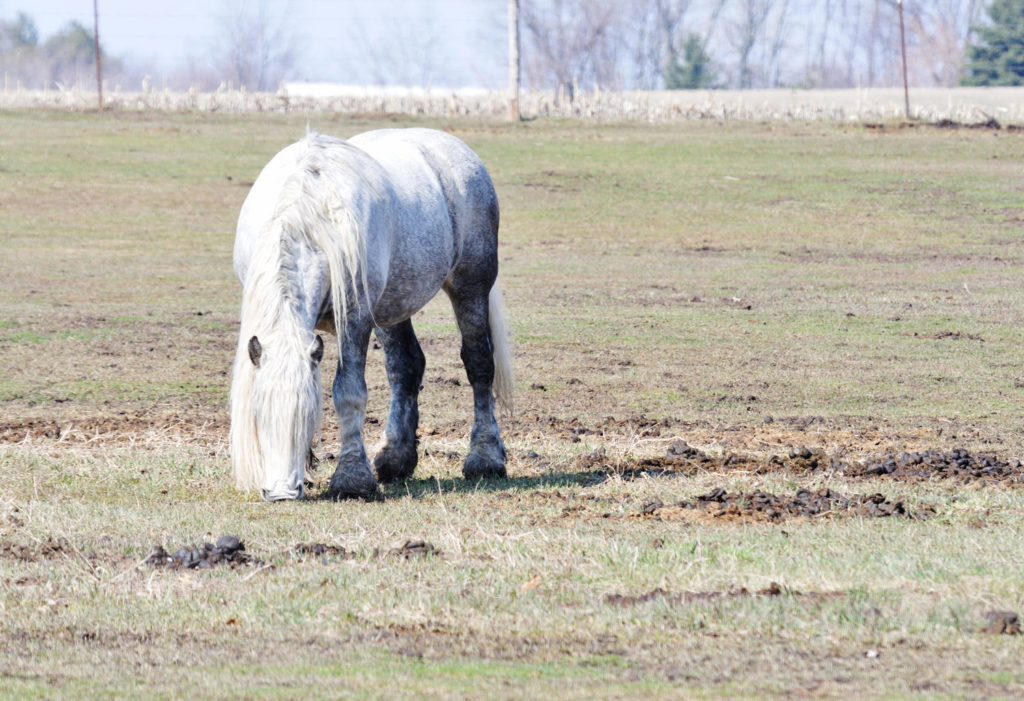
Have you ever counted how many piles of manure your horse generates each day?
Most horses defecate between 8-14 piles a day, give or take. Consider this quantity spread across your pasture over many months and even years. If your horse doesn’t defecate in one or two specific areas, then you are likely to have more manure littering your pasture than grass.
Being selective grazers, your horse tends to avoid grazing grass that has been contaminated with manure. This means that not only is your pasture dirty, but your horse has fewer grassy areas to graze.
It might seem like a staggering project to consider removing manure from your fields, but there are definite benefits besides providing more grazing opportunities.
Cleaning manure from pastures accomplishes several important things:
- It reduces internal parasite contamination;
- It eliminates breeding habitats for flies; and,
- It minimizes adverse effects on water sources from drainage across a manure-ridden pasture.
How to Remove Manure from a Field
The old-fashion style of using a bucket and a rake is quite effective, but labor-intensive. It helps to have a small tractor, ATV or even a golf cart to tow the bucket or a dump cart around while you pick up manure. If you keep up with the task every day, then it doesn’t become too cumbersome; but if several days go by, or if the ground (and manure) freezes and a long time elapses between cleanings, the job can seem overwhelming.
Others have considered this problem and have arrived at some solutions. While these solutions rely on equipment that costs money, it could be money well spent to maintain your horse property and make your time more efficient.
One piece of equipment designed for this task is a pasture vacuum, but these are fairly expensive and slow to use in addition to requiring a wheeled vehicle for towing it.
Less expensive equipment choices that bear looking into include:
- The Tow & Collect Manure Collector. This unit uses a rotation brush mechanism that pushes manure into a hopper with a 165-gallon capacity.
- Sooper scooper. This unit tows like a sled to sweep up manure as you drive past it; then when the unit is spun around and reversed, it has wheels that rotate from the hopper to the ground so it tows like a wagon to the manure pile. There, by tipping it over, the unit dumps its load like a wheelbarrow. On level grass, it is reported to have 90% pickup of manure; on hills, about 85%. A height adjustment is available to accommodate different ground.
Parasite Concerns
Cleaning your pastures at least twice a week, just like picking up your paddocks, is one of the most effective ways to reduce the internal parasite burden on your horses. Most internal parasite larvae are introduced to the horse through consumption of pasture—infective larvae migrate to the top of pasture grass stalks where they are then accessible to a grazing horse.
If you unable to clean your pasture and the pasture tends to be quite contaminated with manure, have your veterinarian run fecal egg counts once or twice a year and deworm accordingly, focusing on your highest egg shedders.


